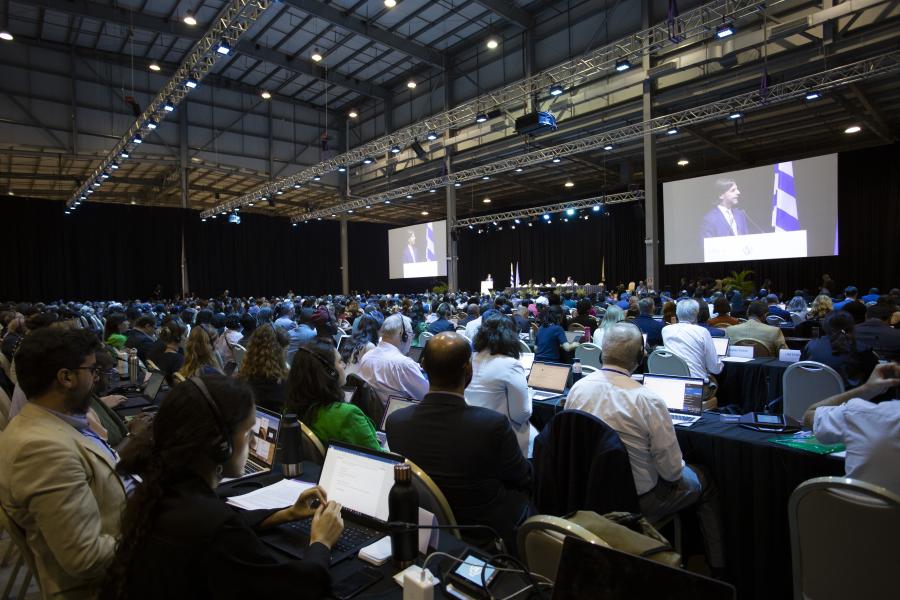1st Session of the Intergovernmental Negotiating Committee to develop an international legally binding instrument on plastic pollution, including in the marine environment (INC-1) | Punta del Este and online, 28 November - 2 December 2022

date: 24/01/2023
Meeting for the first time, the intergovernmental negotiating committee (INC) was prepared to address organizational as well as substantive matters. However, from the very start, the 2 300 delegates from 160 countries delved into the form and substance of the future instrument, addressing the scope, objectives, potential elements and structure; standard articles on final provisions; and sequencing and recommended further work to be undertaken.
On the scope, most delegations expressed preference for a comprehensive approach addressing the full life cycle of plastics. Specifically, delegations outlined that the international legally binding instrument addresses, inter alia: legacy plastic; the drivers and sources of plastic pollution; materials, products, substances, uses, and processes from the polymerisation phase; feedstock; and plastic in the marine environment.
On the objectives, delegations supported that the instrument ‘protect the environment and human health from plastic pollution, and ultimately end plastic pollution.’ Delegations also prioritised that the instrument’s objectives encompass, among others: the environmentally sound management of plastic waste; means of implementation; circular economy approaches; human and labour rights; intergenerational equity; and a just transition.
On the structure, views diverged between those favouring a specific legally binding convention, including core obligations and control measures, and those whose preference is for a framework convention, driven by national action plans (NAPs). Others noted that these options were not mutually exclusive, pointing to the possibility of a hybrid treaty. Many others underlined that it was premature to decide on the instrument’s structure, noting that ‘form follows function’, and calling for an initial discussion on the obligations in order to make a more informed decision.
Some delegates also proposed guiding principles and approaches, calling for the instrument to enshrine, inter alia: the polluter pays principle; extended producer responsibility; inclusiveness; common but differentiated responsibilities and respective capabilities; and transparency.
After listening to all the proposals throughout the week, the Committee asked the INC Secretariat to prepare a document, ahead of INC-2, outlining options for elements of the instrument, based on a comprehensive approach that addresses the full lifecycle of plastics, including objective, substantive provisions like core obligations, control measures, and voluntary approaches, implementation measures, and means of implementation; and including both legally binding and voluntary measures.
For the time being, the Rules of Procedure, as recommended by the Open-Ended Working Group meeting in Dakar in May, will continue to apply provisionally. The Kingdom of Saudi Arabia, India and the Russian Federation made several attempts to reopen the text and bracket majority voting. However, the Chair decided to include the amendment of the Rules of Procedure as a discussion point on the agenda of INC2.
Prior to the meeting, more than 1 000 participants attended a Multi-Stakeholder Forum, both in-person and online. During the INC meeting itself, an additional stakeholder dialogue was held, with two panels addressing, respectively, the upstream and downstream approaches to plastic pollution and the mid-stream stage of the plastic lifecycle.
Election of Officers
The Committee elected Gustavo Meza-Cuadra (Peru) as INC Chair by acclamation and decided that the chairmanship would alternate to Ecuador after INC-3.
It was decided that the next INC session, scheduled in May 2022, will be hosted by France.
